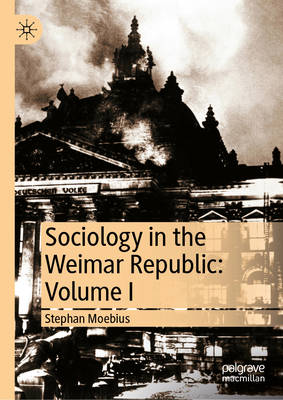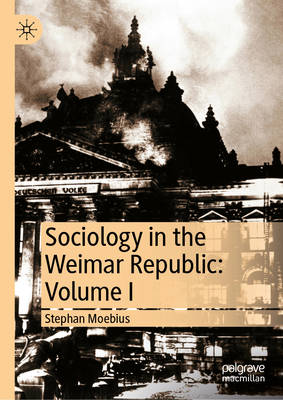
- Afhalen na 1 uur in een winkel met voorraad
- Gratis thuislevering in België vanaf € 30
- Ruim aanbod met 7 miljoen producten
- Afhalen na 1 uur in een winkel met voorraad
- Gratis thuislevering in België vanaf € 30
- Ruim aanbod met 7 miljoen producten
Zoeken
Omschrijving
This book -- a two-volume work --reexamines the development of sociology during the Weimar Republic, characterising it as a period of remarkable theoretical, institutional, and disciplinary vitality. Contrary to conventional assumptions, sociology experienced a dynamic phase of professionalisation and differentiation during this period, establishing itself both as an academic discipline and as a practice of societal self-reflection in a time of economic, political, social, and cultural upheaval. By engaging with the crises of democracy, capitalism, new media, modernity, relativism, intellectual life, and identity, sociology came to play a crucial orienting role within Weimar society. The professional self-examination of modern society that this initiated continues to yield valuable insights into how social and historical processes unfold in modern societies. As such, studying sociology during the Weimar period is not just of interest to historians of science; it remains highly relevant to anyone seeking to understand the dynamics and structures of contemporary modern societies. Volume 1 provides a thorough account of the development of sociology during the Weimar Republic--a period marked by rapid institutional expansion, theoretical innovation, and disciplinary consolidation within sociology. The book traces how sociology established itself as an autonomous academic field, with the formation of new university departments, professional associations, and vibrant centres of research and debate. Key figures and intellectual networks are examined in the context of wider socio-political change. The volume also considers the fate of German sociology under National Socialism and in exile, showing how forced migration not only disrupted developments at home but also facilitated the international dissemination and influence of Weimar-era ideas. Far from being marginal or fragmented, Weimar sociology is presented here as a dynamic and ambitious enterprise--one that played a formative role in shaping the discipline as we know it today.
Specificaties
Betrokkenen
- Auteur(s):
- Uitgeverij:
Inhoud
- Aantal bladzijden:
- 232
- Taal:
- Engels
Eigenschappen
- Productcode (EAN):
- 9783032037756
- Verschijningsdatum:
- 10/11/2025
- Uitvoering:
- Hardcover
- Formaat:
- Genaaid
- Afmetingen:
- 165 mm x 211 mm
- Gewicht:
- 426 g

Alleen bij Standaard Boekhandel
+ 299 punten op je klantenkaart van Standaard Boekhandel
Beoordelingen
We publiceren alleen reviews die voldoen aan de voorwaarden voor reviews. Bekijk onze voorwaarden voor reviews.








